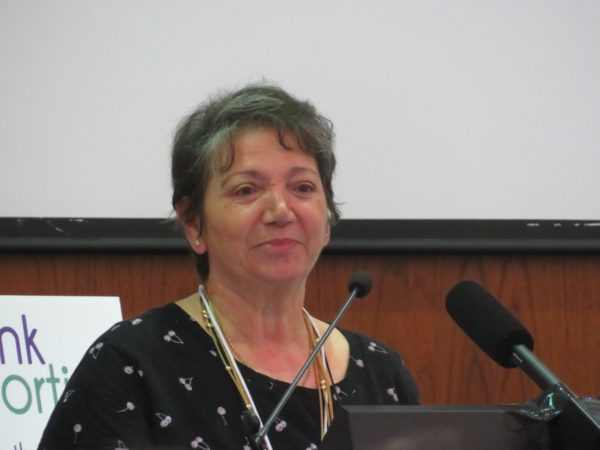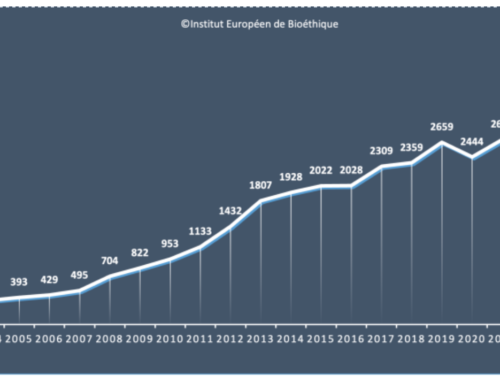Anne Lastman.
Because of the lack of respect for life in its genesis, there is now a global push for legalization for the premature disposal of life at the end. Euthanasia and or assisted suicide. Euthanasia simply means an earlier death than would be the natural course of events and in fact its proponents would suggest that it is a death or dying gently and with dignity. Euthanasia and assisted dying are countenanced and encouraged where it’s believed that the quality of life of the individual has been greatly diminished and the suffering experienced is thought to be excessive. Like fetal destruction for so called “humane” reasons, that is to alleviate future pain or even discomfit, so too with euthanasia/assisted dying the contention is that the early termination of a life considered no longer fruitful and useful the euthanized one will be relieved of all that is considered unpleasant, including their very life.
In his encyclical Evangelium Vitae St. John Paul II rightly called today’s society a society immersed in “a culture of death.” Rightly he puts a name to something which is permeating and undermining humanity and current pontiff HH Pope Francis has called this time “culture of waste” Yet it seems that the anti-life mentality has become unstoppable and indeed embedded into society as a normal. Of course a culture of death does not happen overnight but evolves silently and insidiously.
Euthanasia has ultimately become possible because abortion on demand has been legalized, considered a human right and accepted as a normal. If it became possible to kill the weakest and most defenseless (in utero infant) then more so to dispose of a life, which has become not only burdensome (illness/age) but at times very costly. Evangelium Vitae (66) summarizes clearly why euthanasia and “assisted suicide” are intrinsically evil:
“Suicide is always as morally objectionable as murder. The church’s tradition has always rejected it as a gravely evil choice. Even though a certain psychological, cultural and social
conditioning may induce a person to carry out an action which so radically contradicts the innate inclination to life, thus lessening or removing subjective responsibility, suicide, when viewed objectively, is a gravely immoral act…In its deepest reality, suicide represents a rejection of God’s absolute sovereignty over life and death…To concur with the intention of another person to commit suicide and to help in carrying it our through so-called “assisted suicide” means to cooperate in, and at times to be the actual perpetrator of an injustice which can never be excused, even if requested.”
The Church’s constant teaching on matters of life is that authority over these rests with God alone. God has a plan for each and every human who comes into being. He is aware of the individual’s existence long before it is brought forth and indeed has a relationship with that individual which extends far into the individual’s life here on earth. Euthanasia and assisted suicide all attempt to wrest from God his very authority.
To ponder over the demands to euthanize or assist a human being to prematurely take own life because of convenience or even so called compassion is ultimately a great tragedy.
We can suggest palliative care would be so much more humane, which it is, but I think that maybe if a different understanding of palliative care could be offered or explained it might make a difference. Beginning with a palliative care language.
Palliative care with all its beautiful offerings, I think, remains generally not understood and therefore difficult to see its value. Palliative care like the word “foetus” or even “embryo” or death with dignity, are imageless words and evoke no clear sense of what these actually are and so all that the patients and family are left with is a cloudy understanding of what it means, but a clearer understanding for them is that ending the suffering of a loved one is more compassionate.(euthanasia) Or even, when requested, to assist their loved one, after their terminal goodbyes, to inject a toxin into their body in order to end that suffering and life.
Euthanasia and assisted suicide appear compassionate because it means the end of the visible/physical suffering of the patient but it also means the end of the suffering of those who have stood and watched the suffering. Intentionally prepared death seems so much cleaner and quicker. However, there is such a better way. There is a way of holding the hand of the suffering one. There is a special, deep, unique time of such intimacy as never experienced before.
This is the very real time of journeying together with the loved one. No matter how long, from diagnosis to end moment, it’s a time of real love because this one’s end of life is known and will leave for a different land and never to be seen again. Only the time of the suffering and caring is left to prepare both for the ailing one and the family, because the final leg of this journey can only be taken alone. There is a time when no one can help to change the pathway but helping to prepare the pathway so that the journey may be made easier should be the greatest honour that one can give to another. Especially one who has entered into their life and shared that life with them.
To walk with the suffering one, to whisper words of comfort and love, to hold that frail or very sick hand, to hold gently that frail body and then to finally release that hand and body to go, is what palliative care is all about. To help that frail one to be prepared for the alone part of the journey is the task of palliative care. To speak of eternal matters is the help of palliative care.
My own personal experience of death with its many unanswered questions meant that I was not able to help to prepare my much loved son to make that last part of the journey and was only able to stand by his coffin as it slowly went down and through the tears which fell like raindrops, the stillness, loneliness for him, remember a little boy whose hand I had held for many years. I remembered a life at times at odds with the self. A life not fully lived because of the choice to leave too early. A time I couldn’t hold his hand or prepare him for that last part of the journey. That is what euthanasia and suicide is. A life leaving far too early. Without preparation, without whispers, without holding of hand. And whilst in my memory and heart there will always remain a beautiful little boy who loved, was loved, but who chose to leave too early, the thought remains that he refused the comfort and help which was possible for him just like assisted suicide and euthanasia demands.
Because of the nature of his death I was not able to say the things we say in those moments. The assurance that we will meet again. The assurance that he/she will remain embedded in memory and heart. The assurance that (if religious) their guardian angel will walk that last part of their pilgrimage with them. None of these things were possible because the nature of his/their death was choice and no final preparation for the final mile/kilometer was possible.
Those who call so loudly premature death reject this time of deep soul to soul speak. They refuse to see the fears of the patient. Fears of more pain, fears of being a burden, fears of what might come and because of this failure, early end is preferable.
Palliative care has been too sanitized, too sedate it needs to be on the forefront of all literature, talks, medical surgeries, hospitals, hospices but it needs to be clearly understood especially by those who ultimately are called to make decisions which leave doubts. “Did I do the right thing?”
Palliative care needs to be explained (within the pain environment) in beautiful language of a journey to a beautiful place and gently separation and not a violent separation. Palliative care needs to have counsellors who really believe in a beautiful life leading to a peace filled death. Palliative care needs to be able to help the patient remember life and not to leave life until absolutely necessary.
Palliative care needs advocates who use the same language clearly, especially when confronted by negative media and media personalities whose suffering has been much and who believe that their suffering would have been less had they been able to euthanize a loved one or deliver a toxin into their body. This is a lie by the father of lies in a different way snatch life from the author of life. This is the same kind of life which says that abortion does not mean the death of a child.
Caring for those on their final journey is a charism of deep love because the suffering is shared both by the patient and those who love that patient. Just as love creates a life so holding that life to its final end is a time of grace.








